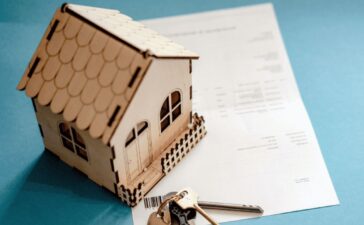Purchasing a brand-new property as a first-time buyer is an exciting process. However, it is also likely to be the most expensive and most important investment you will ever make. As a result, your finances must be in order. Continue reading to find out a number of top tips for financing a property purchase as a first-time buyer or as an experienced homeowner.
1, Savings
While there are a number of government schemes and incentives available for first-time buyers, you must also accumulate a generous savings pot beforehand. It is no longer feasible to borrow up to 100% of the purchase price of a property from a mortgage lender. As a result, you will typically be required to save a minimum of 5%. The interest rate on your mortgage is directly affected by the percentage of the purchase price you intend to borrow. For example, you larger your deposit, the lower your interest rate will be. Your monthly mortgage payments will also be significant lower as a result.
2, A mortgage or home loan
As well as savings, homeowners must apply for a long-term loan in the form of a mortgage or home loan. A mortgage can be lent from a building society or bank. They will also charge interest on the amount offered. A combination of the sum borrowed, and the added interest, is then repaid in monthly instalments by the homeowner over a prolonged period of time. A BOC home loan, on the other hand, offers fixed interest as well as floating interest rates and are applicable for all landed or non-landed residential properties. You must familiarise yourself with the pros and cons of each finance option available to you in order to make an informed decision.
3, A financial adviser
A financial adviser is responsible for providing strategies that can eliminate outstanding financial risk and build wealth over time. They can also be a great asset to those looking to take their first step onto the property ladder. Most banks and building societies have access to financial advisers and estate agents should be able to recommend a suitable adviser for you and your property needs. While initial advice and guidance may be offered free of charge, you may need to shell out for additional costs. Your financial adviser should be able to inform you of any hidden fees ahead of time.
4, Find an investor
If you are looking to purchase a fixer-upper or a large home with significant value, you may be able to find an interested investor. If you possess a certain degree of DIY skills, you can offer to carry out a series of renovations on behalf of the investor. They may even provide the funds if you agree to move out by a certain date. This allows them to make a substantial profit by flipping the property. They may even agree to split the proceeds with you. You may also be able to secure approval for a private, low income personal loan. With this loan, you sign a contract that outlines the duties, obligations, and payment schedules of both parties.
5, Advertise of a crowdfunding site
If you intend to purchase and remodel a property with significant local heritage or are facing financial hardship, a crowdfunding site may be able to help. By advertising your circumstances, interested donors can contribute cash towards the final cost of your property purchase. There are several different crowdfunding sites to choose from including Kickstarter, GoFundMe, CrowdRise, and Fundly. You can share your page with your personal network and encourage them to share your plight. Each donation, no matter how small, can bring you one step closer to raising the funds needed for a down payment on your dream home.
6, Rent to own
While renting may be a last resort for most prospective homeowners, renting to own can be a viable option. Rent to own home is the process of renting a property for an agreed period of time with the option to purchase the home at the end of the tenancy. This provides tenants with enough time to save for a down payment and build their credit score. Some sellers may also offer renters the opportunity to gradually increase their rent payments each month so they can afford to purchase the property sooner. You may, however, be required to pay an upfront fee of between 2% and 5% of the final asking price. You may also end up losing your money if you decide not to proceed with the sale.
Accumulating the funds to finance a property purchase can be difficult. But there are a number of steps you can take to land your dream home sooner. By considering savings, a mortgage or home loan, a financial adviser, an investor, a crowdfunding site, and a rent to own scheme, you can alleviate the financial burden of your next property search.






